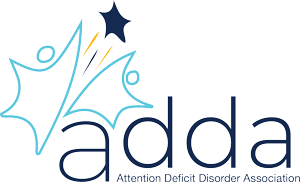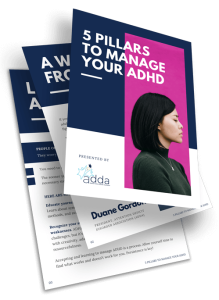
ADHD Paralysis Is Real: Here Are 8 Ways to Overcome It
You really need to get things done but just can’t seem to get the ball rolling. You’re overwhelmed, frozen in place, and can’t even think about what to do first. That’s exactly what ADHD paralysis feels like.
But what is ADHD paralysis?
Also known as analysis paralysis or ADHD shutdown, ADHD paralysis happens when a person with ADHD is overwhelmed by information, emotions, or their environment. As a result, they freeze and can’t think or function effectively.
Adults who experience ADHD paralysis find it much more challenging to focus and complete their tasks. Because of this, they may struggle to keep up with their commitments and responsibilities at work, school, or home.
Analysis paralysis is linked to changes in the functioning, structure, and chemical balance of the ADHD brain. It also shares some similarities with other ADHD-related challenges like ADHD hyperfixation and executive dysfunction.
ADHD paralysis is not a medical diagnosis, but it is a symptom of ADHD. And for many people, it’s a very real and frustrating problem.
The best way to get back on track is by understanding and addressing its root causes.
Read on if you’d like to find out what it feels like when the symptoms of ADHD paralysis set in. Then, we’ll explore some practical strategies to get yourself unstuck.
Originally published on December 7th, 2022, this article was updated and republished on February 10, 2025.
ADHD Paralysis Symptoms in Adults
ADHD affects the brain’s executive function, making it harder for individuals to process information and make decisions.
This is how ADHD paralysis or ADHD shutdown occurs – when you can’t decide what to do or where to start, you can’t take action.
Though ADHD paralysis manifests differently in different people, it’s generally associated with the following symptoms:[1]
- Overthinking or overanalyzing problems
- Unable to start a project, even when it’s high-priority
- Unable to prioritize and manage tasks
- Unable to maintain focus and easily distracted
- Poor time management
- Time blindness (unaware of ticking time)
- Rapid mood and emotional changes
- Difficulty making decisions
- Unable to listen actively
- Jumping from one task to another
- Losing train of thoughts
- Lack of focus
- Lack of clarity (brain fog)
- Avoiding tasks requiring sustained focus
ADHD paralysis may seem similar to procrastination, but the two aren’t the same. We’ve all procrastinated at one point or another, putting off tasks when we’re tired or demotivated.
On the other hand, ADHD paralysis occurs when a person is overloaded with information, tasks, or instructions. They begin to shut down and freeze, and this response is typically out of their control.

Types of ADHD Paralysis: Brain Crash, Overthinking, and Procrastination
There are three main types of ADHD paralysis: mental, choice, and task.
It may be helpful to understand which type of ADHD paralysis affects you at any given moment. You’ll then be able to figure out the root cause and find the best solution to unfreeze yourself.
The following are the three types of ADHD paralysis that a person may experience.
ADHD Mental Paralysis
ADHD mental paralysis occurs when a person is overwhelmed with thoughts, emotions, and information, or experiences sensory overload.
It feels like a “brain crash,” which can cause the person to struggle with processing information and organizing their thoughts. This makes it difficult to figure out what to do or say next.
ADHD Choice Paralysis
This is also known as “analysis paralysis” or “ADHD decision paralysis.”
It happens when someone is faced with too many choices and has to make a decision. They may overthink or overanalyze the situation, becoming overwhelmed. They might struggle to pick an option or implement a solution.
This type of paralysis usually boils down to the fear of failure or making a wrong decision.
It might involve something big, like making a work decision on how to move a project forward. But it could also affect smaller, everyday activities, like choosing where or what to eat for dinner.
Sometimes, analysis paralysis can lead to bigger problems than if the person had made a quicker decision.
ADHD decision paralysis also slows down a person’s decision-making process. This can affect progress and productivity and limit a person’s achievements in a specific timeframe.
ADHD Task Paralysis
ADHD task paralysis, often described as ADHD procrastination paralysis, occurs when a person with ADHD feels hesitant, scared, or unmotivated to begin a task.
This is especially true if the project is new or complex and involves multiple steps and instructions.
In other cases, the ADHDer might feel understimulated when tackling a boring or repetitive task, resulting in a lack of motivation.
The individual may procrastinate and avoid their tasks as much as possible by doing other activities or zoning out.
Task paralysis can affect various activities, such as completing work projects, running errands, or even doing chores at home.

ADHD Paralysis in Scientific Studies
ADHD paralysis isn’t an actual medical condition or formal symptom required for the diagnosis of ADHD. Because of this, there’s still a lack of concrete research on its exact causes, impact, and management options.
However, existing research suggests certain links between ADHD and ADHD paralysis.
ADHD paralysis happens due to the unique wiring of the ADHD brain. Research shows that the differences in electrical activity of the ADHD brain make it harder to filter out irrelevant information and distractions.[2]
This is why the ADHD brain can be easily overloaded or overstimulated by information or stimuli — contributing to ADHD paralysis.
ADHD is also linked to emotional dysregulation. ADHDers may find it difficult to control or regulate their emotions.[3] Small triggers may lead to big emotions, hindering their ability to judge, think, and make decisions. When overwhelmed with big emotions, they may experience mental paralysis.
Apart from this, research also suggests a connection between ADHD and motivation. The chemical messenger dopamine functions differently in the ADHD brain. This changes how the brain processes reward and motivation.[4]
As a result, ADHDers may have trouble building the motivation to move on to activities they don’t find rewarding or enjoyable. This leads to ADHD task paralysis, where individuals may struggle to start working on boring but important tasks.
ADHD Paralysis vs. Executive Dysfunction
Executive dysfunction refers to a set of symptoms where a person finds it challenging to manage their thoughts, emotions, and actions. It affects various skills. Examples include planning, organizing, remembering details, managing time, and regulating emotions.[5]
ADHD paralysis and executive dysfunction might seem similar. After all, they share overlapping symptoms like procrastination, lack of focus, and poor motivation.
However, these two terms refer to different phenomena. If you have ADHD paralysis, you might struggle to complete your tasks due to being overwhelmed by your thoughts, emotions, or environment.
In contrast, if you experience executive dysfunction, you may lack the skills or ability to manage and move your projects forward. Examples include planning, staying focused, remembering important details, and solving problems. So, you might have trouble starting or completing your tasks on time.
Hyperfixation and Its Relationship to Paralysis
ADHD hyperfixation seems like the opposite of what ADHD is most known for—which is a lack of focus.
This phenomenon refers to a prolonged and intense focus on a task. When it occurs, the person becomes completely absorbed or engrossed in that specific activity, making them oblivious to what’s happening around them or how much time has passed.
Most ADHDers experience hyperfocus when participating in enjoyable, interesting, or stimulating activities.
In some instances, ADHD hyperfixation can be linked to ADHD task paralysis.
When ADHDers are so focused on a specific activity, they may be unable to start or move on to another task, even if it’s more important or urgent than what they’re doing. This leads to task paralysis, where they cannot get the ball rolling because they’re so fully immersed in something else.
ADHD paralysis, executive dysfunction, and hyperfixation can all affect ADHDers. Luckily, some strategies and structures can help those struggling with them.
Let’s explore these strategies in the section below.

8 Strategies to Overcome ADHD Paralysis
Ready to stop feeling paralyzed by ADHD – and start getting things done?
Proper diagnosis and treatment by a specialist are the best ways to get a handle on your ADHD symptoms.
However, you can also build structures into your routine to help you organize and prioritize your responsibilities at work, school, or home.
These simple tools and strategies can help you get unstuck.
1. The Daily Brain Dump
Staying organized can be one of the biggest challenges for someone with ADHD.
Being bombarded with too many thoughts at once may also cause you to feel overwhelmed, especially when you try to organize them all in your head.
So, what you can do instead is an ADHD “brain dump.” Here’s how it works:
- Write your thoughts on a digital document, paper, or Post-It note.
- Review and eliminate those that you don’t really need.
- Prioritize and organize the thoughts and tasks left on the list, then split them into different categories or deadlines.
- Add them to your Google Calendar to track and receive automated reminders of your due dates and events.
A written list of the tasks and projects you need to complete makes it easier to organize them.
2. Make Tasks Achievable (Easy Wins)
Navigating a large, complex project can be intimidating. Instead of trying to tackle everything at once, break the project into smaller, more achievable sub-tasks.
This can be as simple as replying to an email or assigning a role to a team member.
Keep each sub-task small enough to be completed within an hour or so. And, of course, it’s good to make time for short breaks in between.
Keep track of your subtasks in a to-do list and cross off each item as you complete them. Every item counts toward completing the bigger project—even if it’s an easy win!
Every item you complete helps build motivation and foster a sense of accomplishment, which is a great way to keep the momentum going.
3. Keep Your Work Schedule Simple
Planning your work schedule for an entire day can sometimes feel like too much information to process at once.
So instead of scheduling and planning a specific duration of time for every task on your to-do list, try this instead: Designate time for just one task.
This means that you’d only plan the time needed to complete one task at a time. Once you’ve completed that first task, plan time for the next one, and so on.
This can be especially helpful if you’re tackling a new project or responsibility you need to familiarize yourself with, since you might not be able to gauge the amount of time you’ll need to complete it.
4. Focus on Completion, Not Perfection
It’s best to let perfection go while doing your work. Processing too many details at once may leave you feeling overwhelmed.
Instead, focus on completing the task. After finishing each sub-task or small milestone, you may quickly refer back to the instructions to ensure you’re on track.
Also, try to be realistic about how much you can accomplish. Taking on more work than you can manage or designating too little time for each task will only lead to excess stress and pressure.

5. Make Room for Rewards
One fantastic way to boost your ADHD motivation is by intentionally creating space to celebrate your achievements and reward yourself.
The reward doesn’t have to be extravagant; you can simply treat yourself to something that helps you relax or brings you joy after completing a tedious or mundane chore.
This can be as simple as enjoying your favorite chocolate, listening to your favorite music, or having a nice meal at a quiet restaurant.
6. Get up and Move
Repetitive or routine tasks can quickly become boring to the brain. At the same time, working on a complex or new project can lead to mental exhaustion and information overload.
In either case, you can take a quick movement break between tasks to give your brain time to rest. Taking a break is, in fact, productive. It can help you feel more alert, composed, and mentally stimulated when you get back to work.
This movement break can be quick and convenient, like taking a walk around the block or doing a few stretches. Scheduling an exercise session into your daily routine can also be beneficial.
In fact, research shows that exercise can improve ADHD symptoms and attention.[6]
7. Keep Things Interesting
Staying focused on mundane and repetitive work can be challenging. So, to keep yourself productive, you can incorporate bits of novelty into your daily routine.
Try changing things up a little. For instance, you could redecorate your office cubicle, work from a nice café, or try out a new tool or app.
You could also find a buddy to complete mundane tasks with. Also known as body doubling, this productivity strategy works by having you finish boring tasks with another person beside you to keep you accountable.

8. Do Things You Love
All work and no play can lead to mental exhaustion, burnout, and increased stress, which may contribute to ADHD paralysis.
So, it’s best to make time for the personal interests and activities you enjoy. And remember, don’t be afraid to explore new creative pursuits, recreational activities, and hobbies whenever possible.
Doing what you love can help relieve tension, clear your mind, and introduce novelty into your day-to-day routines.
Bonus Tip: Seek Support for ADHD Paralysis
Dealing with adult ADHD symptoms may leave you feeling overwhelmed. But that’s not your fault. No matter your situation, you’re not alone.
The ADHD community includes people from all walks of life, many of whom actively share their experiences and support each other. Connecting with a support group is a great way to access support and empathy from those who have walked in your shoes.
If you’d like to understand more about adult ADHD, ADDA+ offers 200+ webinars, peer support groups, work groups, and much more.
You may also seek personalized advice from an ADHD coach. They’ll work with you on customized strategies for your unique challenges, whether it’s time management, organization, or task prioritization.
Additionally, ADDA’s directory of therapists and coaches can point you toward the right professional.
ADHD paralysis doesn’t have to prevent you from pursuing your academic, career, or personal goals. With the proper strategies, treatment, and support, you can overcome it and accomplish what you set your mind to.
Learning how to modify and implement these strategies to fit your routine and lifestyle will take time. So don’t forget to be patient and kind to yourself along the way!
References
[1] Ginapp, C. M., Macdonald-Gagnon, G., Angarita, G. A., Bold, K. W., & Potenza, M. N. (2022). The lived experiences of adults with attention-deficit/hyperactivity disorder: A rapid review of qualitative evidence. Frontiers in psychiatry, 13, 949321. https://doi.org/10.3389/fpsyt.2022.949321
[2] Osborne, J. B., Zhang, H., Carlson, M., Shah, P., & Jonides, J. (2023). The association between different sources of distraction and symptoms of attention deficit hyperactivity disorder. Frontiers in Psychiatry, 14, 1173989. https://doi.org/10.3389/fpsyt.2023.1173989
[3] Soler-Gutiérrez, A. M., Pérez-González, J. C., & Mayas, J. (2023). Evidence of emotion dysregulation as a core symptom of adult ADHD: A systematic review. PloS one, 18(1), e0280131. https://doi.org/10.1371/journal.pone.0280131
[4] Morsink, S., Van der Oord, S., Antrop, I., Danckaerts, M., & Scheres, A. (2021). Studying Motivation in ADHD: The Role of Internal Motives and the Relevance of Self Determination Theory. Journal of Attention Disorders, 26(8), 108705472110509. https://doi.org/10.1177/10870547211050948
[5] Martínez-Pernía, D., Olavarría, L., Fernández-Manjón, B., Cabello, V., Henríquez, F., Robert, P., Alvarado, L., Barría, S., Antivilo, A., Velasquez, J., Cerda, M., Farías, G., Torralva, T., Ibáñez, A., Parra, M. A., Gilbert, S., & Slachevsky, A. (2023). The limitations and challenges in the assessment of executive dysfunction associated with real-world functioning: The opportunity of serious games. Applied Neuropsychology: Adult, 1–17. https://doi.org/10.1080/23279095.2023.2174438
[6] Xie, Y., Gao, X., Song, Y., Zhu, X., Chen, M., Yang, L., & Ren, Y. (2021). Effectiveness of physical activity intervention on ADHD symptoms: A systematic review and meta-analysis. Frontiers in Psychiatry, 12(1). https://doi.org/10.3389/fpsyt.2021.706625






53 Comments
anyone else notice that when you tell yourself you’re going to be fast at something, you actually take longer than normal? or when you tell yourself that you’ll be on time, you’re still always late? or when people try to rush you, it actually slows you down?
when I start a task I’m convinced I will complete it in record time, but find myself doing extra side tasks which then puts hours on top of my original time scale in turn making me feel absolutely deflated!!
I recently learned this is a separate phenomenon called “time optimism”. I used to think those challenges fell under time blindness, but it’s actually slightly different.
Time optimism specifically refers to the inability to accurately estimate the amount of time necessary to complete a task and/or the amount of time one has available for a task, versus time blindness being the inability to accurately perceive the passage of time, especially when one is super engrossed in a task (hyperfixation).
It’s very interesting, and very frustrating, the layers to ADHD that a layperson, and even many of us diagnosed, are simply unaware of, as the consequences of these manifestations severely hinder us, and often have us seen as careless, unreliable, lazy, and irresponsible- often times even by ourselves.
Time optimism – I haven’t heard this expression before but I feel it captures really accurately what I’m struggling with as well.
This little nuisance makes me, too, feel like I constantly over-promise and under-deliver. And the more I stress about it, the worse I perform – a vicious circle that’s often so hard to break.
I can relate to this, when my overthinking kicks in, or mental paralysis all I do is go to bed, regardless of what needs to be done. Sleep is what makes it all stop so as you can imagine I sleep a lot. But then the anxiety from incompleted tasks starts and it’s a vicious circle. I start to feel as today’s world or rather the digital direction it’s taking is not supporting my ADD brain. We aren’t supposed to do so much alone, if someone is not able to get up to do dished there should be someone that will come in and do dished with them, help them start. today’s world is so disconnected, my ADD brain struggles so much when I sit with humans and someone pulls out a phone with no “sorry I need to deal with this”. It’s so rude, and shouldn’t be accepted. In the past when people sat together and got bored they still had to interact, there was no phone to pull out to focus on.
Sonia, I agree with you about sleeping. It is the only thing that works. It is like self-medicating but at the end of it all, you land into more trouble.
Same…my issue is that I get so exhausted and either overwhelmed mentally/emotionally or bored out of my mind. (Which boredom is terrible because my racing mind goes into hyper speed!!) My problem is that as soon as make that decision to try to rest, I start getting these awful waves of anxiety that kick in right as I’m starting to dose off…it’s SOOO frustrating. I usually just give up and get up and continue to be exhausted either emotionally/mentally or bored to tears🙄😔 Too bad these generic medications aren’t worth a crap anymore therefore hardly make a difference at this point 🤦🏽♀️
this is happening to me right now. it gets worse the longer I wait to deal with it; whatever “it” may be. how are you dealing with everything? I’m new to this self discovery
thanks for info.
The subtype hyper-mental (neither inattentive, or hypo/hyper-active) don’t necessarily experience mental “Paralysis”.
I’m glad you all are getting to the same place I am. How to get started. Find motivation. If anyone discovers the magic answer or finds documentation please let me know!
Agree! The motivation and drive to do simple things
This seems like a useful article, but an ad for more ADHD-related content popped up before I could really settle in to read, and the intentional choice to disrupt my focus coming from an ADHD-focused organization felt like such a betrayal. I was so genuinely distracted by this bizarre advertising choice that I did not finish reading the article. I have to assume that if the article were worth finishing, you would not have tried to distract me from it.
Thanks it help a lot
If you can generally complete tasks or finish projects when you want, remember important dates and appointments, and have a good sense of time and time management, chances are you don’t have ADHD. And if not completing a task or being late isn’t particularly stressful for you, it may not be a symptom of ADHD. 먹튀검증
I am completely immobilised !!!
I’m nearly 50 and cannot get up, even to do the dishes or have a shower until it/they have to be done.
I think we all understand the symptoms, but as per the comments on this site, this is the issue …. getting started.
Breaking things down into lists is the easy part (sometimes, but rarely)
The amount of mental energy spent on this then makes getting it done basically impossible.
Seeing a psychiatrist is expensive, and when you haven’t got the energy etc. to get the things required completed, the merry go round starts all over again.
The only thing that has ever helped feel “normal” is dexamphetamines that I have acquired thru friends etc. on the odd occasion.
These are so hard to get from my experiences, as I need my parents (elderly) and my siblings to do a character reference.
Is there any help out there to get these a little easier?
This is the only time I have felt the “normal” in my life since I can remember, (as mentioned above) and now know this will be the only way forward for me.
Hope someone can help, as I can’t see a way forward without medication.
Thanks for reading
Hi Troy – I don’t know what country you live in. I’ve never heard of needing character references for ADHD stimulant meds. That just (potentially) causes yet another barrier to help and possibly shame and unnecessary conflict/tension. I’m really sorry that is how things are where you live. I’m Canada, your family doctor can prescribe stimulant meds – or you can get them from a psychiatrist. I wish there weren’t additional barriers for you to get the help and support you need and deserve.
There’s an app called Dubbii, created by a couple where the wife has ADHD. It may help as you don’t have to create the lists, you just tick a box next to tasks you want to build into your day. The brain loves patterns and routines. And it gets easier when you consistently have one. Then you can also add additional tasks to ones you’re already doing (ex: start slow – wash the dishes when that becomes routine, add in – wipe down the counter. When that’s routine – add out away the dishes). They ought back ok each other as you build routine and expand your window of tolerance.
I wish you all the best.
I have no affiliations with the Dubbi app, I just discovered it myself and thought I’d share.
The only way to get dexies is to see a shrink. If u gonna take them, take them properly. Don’t ever have too many & then let yourself go without coz that’s really really not good for you.
I’m sorry, this sounds so hard. Have you considered a psychiatrist in anoyher country? For example an English speaking psychiatrist in Greece or Poland that can help you and is much more affordable to do it on zoom. There is also ADHD coaching available, many english speaking coaches in other countries much more affordable.
I am in the same boat you are. My husband was diagnosed adhd decades ago and is on the max dosage. I have been depressed since I was about 13 and have tried half a dozen antidepressants. Currently on Wellbutrin xl 300 and celexa 20. I don’t cry all day or have gloom and doom thoughts or the negative loop playing in my head all day taking those, however, they don’t get me out of the bed unless it is something necessary like a Dr appt or to get dog food etc. when I take half of hubbys pill, I feel motivated. Hopeful, gratefulness comes over me. I want to do gardening and take the boat out. I don’t feel high. I don’t feel amped. My heart rate does sit in 100s for that 5-6 hours but what’s worst, laying in bed with potential for blood clots and atrophy of my muscles and no relationship with my friends or kids/grandkids? My mother is the same way. We cope by sleeping. Always have. I am overwhelmed and feel unsupported with tasks and that causes a shut down. Hubby doesn’t mind giving me money to do things or buy this or that, do upgrades that are overwhelming me such as an old house that needs repair or my body that could use some toning etc. no dr will prescribe me any form of ADHD med. it’s like I’m asking for OxyContin or morphine, I don’t want to get high. I don’t want to br in control of my actions at all times. It pisses me off but life goes on. Wish I had a therapist that could change my chemical wiring by telling me steps and methods but first I have to get out of bed and motivated enough to give a damn first. They don’t get it.
Hi Troy, you shouldn’t be having these difficulties getting meds. I’m sorry to hear of your struggles. Like someone else said, you SHOULDN’T need a character reference for meds, just a diagnosis. Do you have an official diagnosis? If not, start there with a therapist who specializes in ADHD. I have seen a ton of therapists and tried a ton of SSRI’s and none of it worked because it was not tailored to ADHD. Additionally, I personally have had horrible experiences with psychiatrists but found a psy arnp who specializes in ADHD who manages my meds-including Adderall. She even did labs and a gene map before even prescribing anything. She reinforced the ADHD diagnosis and also tested me for OCD. I can’t stress enough how important it is that you are working with professionals who are experienced with ADHD. Good luck and I hope you can get the help that you deserve!
thank you Kristie. this comment opened my eyes to a new path forward. I’ve been in ADHD hell for as long as I can remember, getting worse gradually, over the past maybe 10 years. I’m 49 now, and have become almost completely paralyzed with anxiety, depression, and severe ADHD symptoms. I’ve taken several different kinds of anti depressants but never have I thought about looking for a doctor tailored to my ADHD flavor of this. thank you so much. it’s difficult finding the proper care where I live in Seattle, wa. I don’t have a regular doctor and rely on Medicaid. if you know of anything in my area pls let me know 🙂. a longshot for sure but worth the ask. thanks again
Thank you for putting into words what I find difficult to articulate let alone admit to others. Paralysis vs procrastination is a huge difference. I was diagnosed at 40 a few years back. It was a big aha! moment that brought me a sense of validation, understanding, explanation and a platform to explore more appropriate strategies for my struggles. While studying I’d sought help which always came in a similar format of breaking down tasks, prioritising, SMART goals etc, but it still didn’t change the fact that my problem wasn’t usually a case of not knowing what to do, even knowing how to do it, if asked, but the doing/action part was still beyond my reach when I’ve hit paralysis. This is the first time I’ve encountered the concept of different types of paralysis which definitely resonates with me and explains why I found it hard to describe to my psychologist.
After reading others comments, I see I’m not alone in finding breaking out of paralysis mode as a massive barrier to even contemplating the suggested strategies made and what we already know is supposed to help. It would be helpful and appreciated if there was more guidance on what to do once you’re in paralysis mode (feels like an oxymoron though I’m not sure I’m using that term correctly here, but you get what I mean right?) One step further from that, is it possible to be self aware we are approaching paralysis so we can break it f that loop before it sets in? The strategies suggested feel more geared towards preventing paralysis – unless you hit paralysis in one of the number of steps to break down said tasks and steps further.(Now it’s sounding more like my own process of falling down the rabbit hole of the chicken or the egg argument which then morphs into a hamster wheel thought pattern where dismounting is akin to hitting a wall after a high speed crash).
If anyone discovers where the circuit breaker switch is, please share!
The BEST part of this article (which I’ve read elsewhere a 1000x), is the comments section!!!
Sooo much to unpack here…
Ok so firstly, we all agree paralysis is real & crippling and these comments prove that a whole persons life at any age is infiltrated with disadvantage in every aspect, – which then all make each others aspects worse and your in a steep & serious decline into your life falling apart. When that happens, AS IF you’re going to be able to go to the extreme effort it takes, to navigate the sh*t show that is the Uk neurotypical ableist social infrastructures of disability support. The system isn’t broke – it was built like this deliberately.
In the UK it takes years, and to know exactly what it *should* be doing and how your entitled to receive this, you need to be a 24/7 detective, an expert on neurodiversity social science and a disability lawyer!! After you’ve gathered all the intel, processed, analysed it and put together your case, you then have to fight your ass off with all neurotypical gatekeepers. Non of which have a clue about all of the above, and when you’ve got to this stage, you then need the determination of an Olympic athlete, to persevere in breaking down their unconscious biases & prejudices, to get them to think outside of the physical disability box. Unless your Ghandi, this will certainly trigger the emotions of the systemic disability discrimination that you encountered your whole life, numerous times a day – and all the self internalisation of that, that takes years to unlearn.
It’s then highly likely, their lack of knowledge and comprehension, will be deflected onto you, and any emotional reaction will be detrimental to achieving the outcome of accessing support.
If you have by any miracle come through all that, without severe (as in on the brink of combustion), health consequences and have mitigated the accumulative domino effects on all areas of your life, then please send me the details of whatever witchcraft your relied on.
I say all this, as a fellow AuDHDer, and ex police officer and a mature student of law with two children going through the SEND process. One now I’ve taken out of school, due to the aforementioned. I have interrupted my studies and for the next year am consulting on neurodiversity issues and setting out to change the system, with some ‘radical’ ways to change this. (aka using common sense).
Thanks for the information-packed comment Louise. Edited your post to get it approved.
I can relate with this also. I get emotional dysregulation quite often. I get triggered by childhood trauma events and my brain just quits braining! Im currently IN a paralysis situation. A “person” that has insulted and belittled me in the past CALLED ME! When I saw that name on caller ID? My brain checked out!! No message was left. No! I did not answer. Nor did I respond to the call AT ALL.
I just thought THE NERVE !! Then that’s ALL I could think about. And I’ve been in a BRAIN PARALYSIS funk ever since. it’s been 6 days. Crap and chores are piling up.
I missed my Therapy session today. Trying to change settings to DO NOT DISTURB and accidentally cutoff the call I had been on hold for. Now THAT is all I can think about. Im just all jammed up.
Especially difficult the older I get. I’m in my fifties and I feel like the window for any real progress is going to slam shut never to be opened again.
My husband has ADHD and ADHD paralysis describes him perfectly. I hate the term “neurotypical” though. Nothing about my cPTSD, GAD and MDD diagnoses makes me “neurotypical”. I had traits very similar to ADHD growing up but it’s impossible to separate them from the rest of my diagnoses now. Thanks to my controlling dad, I developed coping mechanisms to get my stuff done. And yet my ADHD husband can’t do anything he says he’ll do. We have a child together and I do the majority if not all of the planning and housework.
My wife has been dealing with my untreated ADHD for over 20 years now and it definitely has put a strain on our relationship. Although she acknowledges that I have it and recognizes all the many symptoms, she still feels I use it as a crutch and excuse for not getting things done. What’s worse is that she dated a man with ADHD that worked very hard, got things done and managed to use some of the symptoms to his advantage to accomplish various goals. He was also in great physical condition and would never be considered lazy or un-motivated. Every time I mention my ADHD when discussing following through with various projects, I’m reminded of this guy and how well he managed his ADHD, just reinforcing the idea that I’m just using it as an excuse.
are you able to get treatment for it?
ADHD is not the same for everyone. So to make comparisons is unfair. You may be struggling with things the other person did not have to contend with.
The thesis of this article is that “ADHD Paralysis is Real,” yet even in the two referenced articles, ADHD paralysis is not mentioned and it is unclear if the authors are drawing from personal experience or unreferenced studies. While the experiences described in the article are likely common amongst people with ADHD, they are also common amongst individuals with anxiety and mood disorders. Given the current popularity of the ADHD diagnosis, my concern is that many people may miss out on, or even reject effective treatment of underlying conditions due to attributing their symptoms entirely to ADHD.
I’ve probably read 100s of articles, just like this, with the same tips, etc. But I have to think that many who write them, while they may describe ADHD Paralysis pretty accurately, I have to wonder why they would think someone with this condition would be able to follow the tips offered.
For if someone has the issues described, just being told to break up various tasks into “smaller pieces”, actually means there are even more tasks to complete! In my life, it doesn’t matter much if it’s a big thing, or a little thing to do, paralysis is paralysis, so getting anything done often seems insurmountable. Whether it’s something that would take 15mins or a couple hours, if the problem is just getting started, just doing it, the time involved in accomplishing it, is pretty much irrelevant.
I make lists, I will narrow them down sometimes, to just a few things, that are high priority, and I can usually do at least one or two, maybe. Some things have been on the to-do list for literally years, which can be pretty depressing, when I come across them years later, and see some of the same things on there, from 2, 3, or even 5 or 10 years ago! And many on the list are even things I want to do, so it’s not about putting off I don’t want to do, it’s just about putting nearly everything off. That’s what paralysis is….
Exactly, your post completely resonates with me Steven.
Some of these suggestions are the same neurotypical solutions/ways of doing and being that we have all been advised to do 1000 times before and we can’t, for the exact reason that we have ADHD. Suggestions 1&2 are essentially just descriptions of someone who is neurotypically organised. Someone who can, on a daily basis without crippling avoidance, emotional energy, anxiety etc. sit down and accurately identify, classify, prioritise, predict time for completion and schedule tasks and sub tasks. If I could do that on a daily basis then I would not have some of the classic symptoms of ADHD.
To suggest these kind of neurotypical tools that all of us with ADHD have been told to do 1000 times before and criticised our whole lives for not being able to do like other neurotypical people, is just perpetuating our frustration, disempowerment and placing neurotypical solutions and expectations on neurodivergent people. This kind of stuff is often given in place of the medical/therapy community not really having answers or effective sustainable strategies. However, if they don’t have answers, don’t just repeatedly suggest things that for most of a group of people are next to impossible in any sustainable way. You wouldn’t do this with a physical trait, like in my case, make suggestions on how to listen more carefully, when I have a hearing impairment.
I am not suggesting there aren’t people with ADHD who can do these things, and there are many people with ADHD who journal and find it easy to write down thoughts on a daily basis. However, if they can do those things, then they don’t need them suggested to them and for the vast majority of people with ADHD we find these kinds of neurotypical executive functioning tasks next to impossible in a long term sustainable way.
YES! Thank you, Steven and TJ! Finally, some validation from people who get it. Well said both of you.
I wonder if we will ever find a way to manage these symptoms that are beyond crippling at times and always manage to make things worse when you need to be on your A game.
It’s pretty ironic that the symptoms we exhibit are the same ones that prevent many of us (me, anyway) from following through with the suggested tips and strategies in this article. I’m in my mid fifties now, undiagnosed (professionally) and untreated all my life and self motivating to do anything helpful to combat the ADHD paralysis ends up in frustration and a whole lot of self pity. I know of some people who have been diagnosed with ADHD but manage to use it to they’re advantage in some way, like hyper-focusing on a project to get it done for example. Those individuals also always seem to be in great physical shape and have a have a pretty steady exercise routine (something I’ve never been able to stick to). At my age, I’m hesitant to seek professional help and start any medications to combat the symptoms. All my life I’ve felt (and have been told) that I’m just lazy, uncommitted and never living up to my potential. Now, at my age and dealing with unstable employment situations, I’m in a panic mode that just makes everything so much worse.
I know that following all these tips and strategies would be helpful, but it’s the actual following part that often doesn’t pan out. The most helpful suggestions definitely come from actual individuals suffering from life-long ADHD. Everyone is different still, so a collection of various “success” stories would be a great resource. Maybe one or two might resonate with someone who can relate to a similar life-time circumstances and provide some helpful management tips in dealing with their specific symptoms/problems.
Stephen, TJ, and LJ – you have described exactly what I’m going through. I have recently been diagnosed with both bipolar too and HD HD. I am going to try the tools suggested but I agree. I will have difficulty dealing any of it. All I can do is try. However, I am absolutely paralyzed with the small things and smallest tasks. I am hopeful that using the tools will help me in some type of way. Thank you for posting your experiences. It really is so helpful.
Thank you Steven, I am RIGHT there with you. In complete crisis due to this paralysis right now in my life and having no support while my life spirals is also devastating. I can’t even even find an adhd coach to help. I have reached out to so many. I am sick of articles saying get support but then it is impossible to do that also.
You are very much correct. It is not about putting only things we don’t like about also the things which we like to do. Do you think people with ADHD can have a passion in which they can work for hours without demotivation?
Yes Rajesh, that is possible. As a professional musician, I believe that my ADD (I refuse to call it ADHD, because I am in no way hyper-active) has been an aid, as I believe my improvising skills, ability to come up with melodies, and aversion to playing songs or solos the same way, stem from ADD “symptoms”…
However, having been undiagnosed until nearly 50, I can look back and see so many times when scattered thinking sabotaged career moves that would have enabled me to both earn more money, and gain wider recognition. By the time I was diagnosed, after trying a handful of anti-depressants (to rule out depression), and various amphetamines, I’ve found that Adderall at least helps my brain waking up with the rest of me, as too often I’d wake up, but my mind felt like it would just not wake up, as well.
So, it was great to have an actual explanation as to why I could never complete projects (except at the very last minute), was disorganized, and unable to make good decisions, that I could see so clearly, in looking back, just not in the moment. And while the Adderall helped me think a little more clearly, it didn’t offer other benefits that most “regular people” feel when taking it, especially having more energy.
Thus, I still fall pray to what I’ve always called “the paralysis of will”, for it’s deeper than just not knowing what to do, or how to do it, or even putting off things we don’t want to do. In fact, my greatest frustration has been that I even put off things that I WANT to do, and enjoy doing! A good friend, also a musician, and also a psychiatrist, was also not sure why this occurred. He even said that while he normally wouldn’t work with a friend, that he’d be wiling to hlep me try to figure it out. So, of course, that was one more thing I should’ve done, but for some reason, filed it away, never to do!
And so in the 25 years or so since my diagnosis, I’ve read books, watched talks, online webinars, seen various psychiatrists & therapists, none of whom has ever helped me better deal with my ADD, beyond writing my regular prescriptions. I was a bit stunned at how many psychiatrists have been reduced to do nothing more than talking to patients, and writing prescriptions, which seemed pretty sad, even pathetic. To do so much schooling, only to sit and hand our prescriptions all day…
Oh well, good luck to all who know all too well, how our paralysis can’t be overcome with all these typical “tips”. That’s what every article or talk, concerning overcoming procrastination, paralysis, disorganization, & lack of time management all seem to do, give us the same general list of “tips”, that if we could do, would mean we don’t really have ADD…
Thanks for the reminder that overcoming perfectionism is also one of the things to focus on when dealing with ADHD. I plan to look for a good children’s ADHD treatment clinic because my son is showing signs of being in the spectrum. Getting an evaluation for him would be crucial in the long run.
After splitting the tasks I would feel that the overall tasks are still so many. I don’t know what should I do, I’ve only completed this little bit, how long will it take to finish it, will people still accept my assignments (I’m attending an online class at my school, I don’t know if there will be a teacher willing to accept the assignments late but the school system won’t accept them), how will people look at me.
And I don’t seem to be able to finish 0.5h and feel motivated enough to take a break and move on to the next 0.5h. Instead, I finish 0.5h and then I don’t want to do it today!
What to do, very confused and anxious.
See , for me, splitting the tasks, setting them up w all associated things so that they’re ready for me just uses up all the motivational energy I had worked to accumulate altogether. Sooooo many times I find myself on my living room floor, neatly combined “subtasks” outlined around me, now completely depleted, defeated and HEAVY with exhaustion. It felt good during, but then I need a few days to recover and every intention is forgotten. So awful.
Wao! I read this article by chance. I have been experiencing this kind of paralysis all my life. I thought that I was lazy because a couldn’t finish a lot of things on time, or tasks that were of high priority. I have implemented some of the recommendations mentioned here with trial and error and found what works for me. This kind of paralysis has been on the way in my career for a long time. I’m an adult now and have visited several mental professionals because I was depressed because I couldn’t achieve my goals. Just once somebody mentioned could be ADHD. I feel like I have the potential but doing was so hard for me. Thank you very much for sharing this article.
I have struggled with ADHD and ADHD paralysis for a long time, but this is the first time it’s really put me in such a disastrous position educationally. I have so much work to do and I just can’t ‘get to it’, like I have done in the past.
It can be very straining and exhausting, dealing with the deficits of ADHD, and although it has its positives, feeling confident enough to reach out and ask for help is a struggle in-and-of itself.
I want to thank the author of this article for their time, research, and for helping me figure out what to do next. Completing these next steps will hopefully give me a push in the right direction toward success. 🙂
Thank you again, so, so much!
Bye
Insightful article on ADHD Paralysis! Your clear differentiation between ADHD paralysis and procrastination was enlightening. I found the practical strategies, especially breaking tasks into smaller parts and introducing novelty, very helpful. The reminder that we’re not alone in this journey is comforting. Thanks!
Hi, I’m 45 now and have believed for a long time now that when I was growing up I had ADD, but never associated with the hyper element of ADHD. Although when remembering back I did go pretty loopy at times growing up 😂.
I completed a graphic design degree last year, struggling through it but I did it!
I’ve slowly been falling into the negative side of this ADHD Paralysis and have always thought it was me being lazy, procrastinating, making bad choices and choosing fun and exciting stimuli (gaming with mates) over discipline.
I didn’t consider that I actually have ADHD until my wife said what she had recently been reading about ADHD sounded just like me. I have done lots of personality tests and have reasoned that aspects of ADHD are just my personality. Perhaps not helped by not having major ADHD (who knows at this point?) has meant I have slipped under the radar, especially as I was growing up society didn’t understand these things and I was just considered a naughty child; always messing around instead of doing my work, getting distracted when I should have been paying attention, etc.
I am going to talk to my doctor to ask if I can get diagnosed as to whether I have ADHD or not. I kind of hope that I have so that I can finally get help to address this dysfunctional way of life I’m leading and seriously get focused so that I can actually begin a career in graphic design!
Hey Steve,
Many of us have not been officially diagnosed until later in life (46 for me), primarily because when we were kids ADD wasn’t really on the radar. Plus, I was never hyper-active, my mind was, but I had what’s known as “inattentive ADD”. So I always had to put my attention on other things, than just sitting, listening to teachers. I would write stuff, draw, look out the window, looking at the girls in class, etc. I always did well, as I could listen, while I did other stuff, and was never a discipline problem, so no one ever thought I needed any help.
So, you are likely just realizing that the issues you’ve had all your life, sound a whole lot like those of someone with ADD. What spurred me to seek a diagnosis was seeing a 60 Minutes segment, where a couple sought treatment for their son’s ADHD. In learning more about it, the father realized it sounded just like his life experience! So he sought a diagnosis, and in fact, was not surprised to discover he was ADHD. So it’s very common for middle-aged adults to realize this resonates with their lives, & get diagnosed. You should definitely look into it, it’s never too late…
But what if I have ADHD but my perents don’t belive me but everyone else does. I strugle with it very much and I can’t get the help I need. What should I do?
Hi, Emerald —
You might try taking the ADHD Self-Report Scale Symptom Checklist on this site. Go to https://add.org/, then click on Free ADHD Test. You can then choose either the Online Test or Paper Test.
The assessment was compiled by professional psychiatrists and takes about 5 minutes to complete. I found my results very helpful.
If you see your several of your answers are in the gray boxes, you can print out your results and show them to your parents or a trusted teacher or doctor. Your concerns deserve to be taken seriously.
do it. life. you like I, are on your own. put them aside as fast as you can. get help from those that care. simple fact. if they can’t recognize your Add and everyone else does. they are your only problem.
my life was destroyed before I realized this in life.
I see that this blog post is about ADHD paralysis and how it can affect individuals with ADHD. The author provides some helpful tips for managing ADHD paralysis and breaking through procrastination. I think this is an informative post that can help those with ADHD, as well as their loved ones and caregivers, to better understand this condition and how to overcome its challenges. It’s great to see resources like this available to help those who struggle with ADHD.
Thank you